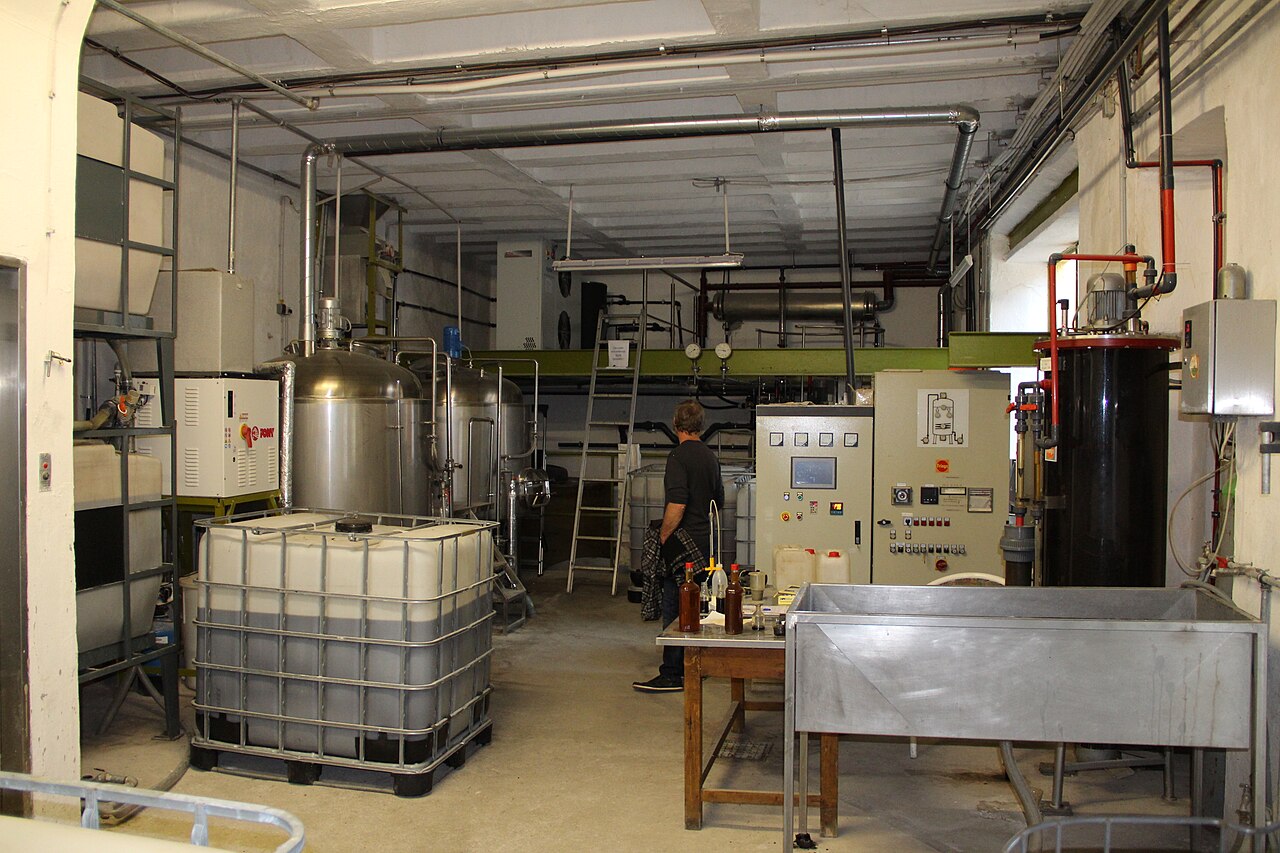Science
Researchers Enhance Vinegar with Nanotech to Combat Infections

A team of scientists from the University of Bergen has developed an innovative treatment that significantly enhances the antibacterial properties of vinegar, potentially revolutionizing wound care. By infusing ordinary vinegar with cobalt-based carbon nanoparticles, researchers have created a powerful antimicrobial solution designed to speed up healing and prevent infections.
Chronic wounds often fail to heal due to bacterial infections, a condition that poses severe risks, especially for the elderly and individuals with diabetes, cancer, or other immunocompromised states. This new treatment could provide a vital solution, as delayed healing is frequently linked to these health complications.
Advancing Antibacterial Properties
Vinegar, or acetic acid, has long been recognized for its disinfectant qualities, dating back to ancient times. Despite its historical use, vinegar is only effective against a limited range of bacteria and does not target some of the most dangerous pathogens. In particular, strains like Staphylococcus aureus and Pseudomonas aeruginosa possess specialized virulence factors that enable them to invade and adhere to host tissues.
In their recent study, the researchers added cobalt-containing carbon quantum dot nanoparticles to a weak acetic acid solution. This combination resulted in a novel antimicrobial treatment that was tested against multiple pathogens, including drug-resistant strains such as Escherichia coli and Enterococcus faecalis. The unique properties of carbon quantum dots allow for precise tuning of their optical and electronic characteristics, making them valuable in nanotechnology and medical applications.
The acidic environment provided by the vinegar causes bacterial cells to swell and absorb the nanoparticles. This disruption of the cell membrane increases the internal pH levels and denatures proteins within the bacteria, ultimately leading to cell death. The nanoparticles then attack the bacteria from both inside and outside, resulting in the cells bursting.
Promising Results in Animal Testing
Tests conducted on mice demonstrated that this new compound effectively healed infected wounds by targeting common infectious bacteria. The findings suggest that this treatment could be a crucial advancement in the fight against antibiotic-resistant infections, a growing global health concern. According to estimates, antimicrobial resistance is linked to approximately 4.5 million deaths due to infectious diseases each year.
The research was published in the journal ACS Nano under the title “Cobalt-Doped Carbon Quantum Dots Work Synergistically with Weak Acetic Acid to Eliminate Antimicrobial-Resistant Bacterial Infections.” The study highlights the potential of enhanced vinegar as a significant contribution to addressing the rising levels of antimicrobial resistance worldwide.
As the battle against resistant infections continues, this novel approach may offer a new pathway for healing and recovery, utilizing a common household substance in an extraordinary way.
-

 Education3 months ago
Education3 months agoBrandon University’s Failed $5 Million Project Sparks Oversight Review
-

 Science4 months ago
Science4 months agoMicrosoft Confirms U.S. Law Overrules Canadian Data Sovereignty
-

 Lifestyle3 months ago
Lifestyle3 months agoWinnipeg Celebrates Culinary Creativity During Le Burger Week 2025
-

 Health4 months ago
Health4 months agoMontreal’s Groupe Marcelle Leads Canadian Cosmetic Industry Growth
-

 Technology3 months ago
Technology3 months agoDragon Ball: Sparking! Zero Launching on Switch and Switch 2 This November
-

 Science4 months ago
Science4 months agoTech Innovator Amandipp Singh Transforms Hiring for Disabled
-

 Education3 months ago
Education3 months agoRed River College Launches New Programs to Address Industry Needs
-

 Technology4 months ago
Technology4 months agoGoogle Pixel 10 Pro Fold Specs Unveiled Ahead of Launch
-

 Business3 months ago
Business3 months agoRocket Lab Reports Strong Q2 2025 Revenue Growth and Future Plans
-

 Technology2 months ago
Technology2 months agoDiscord Faces Serious Security Breach Affecting Millions
-

 Education3 months ago
Education3 months agoAlberta Teachers’ Strike: Potential Impacts on Students and Families
-

 Science3 months ago
Science3 months agoChina’s Wukong Spacesuit Sets New Standard for AI in Space
-

 Education3 months ago
Education3 months agoNew SĆIȺNEW̱ SṮEȽIṮḴEȽ Elementary Opens in Langford for 2025/2026 Year
-

 Technology4 months ago
Technology4 months agoWorld of Warcraft Players Buzz Over 19-Quest Bee Challenge
-

 Business4 months ago
Business4 months agoNew Estimates Reveal ChatGPT-5 Energy Use Could Soar
-

 Business3 months ago
Business3 months agoDawson City Residents Rally Around Buy Canadian Movement
-

 Technology2 months ago
Technology2 months agoHuawei MatePad 12X Redefines Tablet Experience for Professionals
-

 Business3 months ago
Business3 months agoBNA Brewing to Open New Bowling Alley in Downtown Penticton
-

 Technology4 months ago
Technology4 months agoFuture Entertainment Launches DDoD with Gameplay Trailer Showcase
-

 Technology4 months ago
Technology4 months agoGlobal Launch of Ragnarok M: Classic Set for September 3, 2025
-

 Technology4 months ago
Technology4 months agoInnovative 140W GaN Travel Adapter Combines Power and Convenience
-

 Science4 months ago
Science4 months agoXi Labs Innovates with New AI Operating System Set for 2025 Launch
-

 Top Stories2 months ago
Top Stories2 months agoBlue Jays Shift José Berríos to Bullpen Ahead of Playoffs
-

 Technology4 months ago
Technology4 months agoNew IDR01 Smart Ring Offers Advanced Sports Tracking for $169










